Posts By Vicki Sutton


The Intersection of Technology and Pharmaceutical Products
Technology has rapidly been changing the landscape of virtually every industry, and the pharmaceutical sector is no exception. In recent years, the integration of technology into pharmaceutical products has revolutionized the way medications are developed, distributed, and administered. This fusion of technology and pharmaceuticals has led to advancements that have improved patient care, enhanced drug effectiveness, and increased safety.
One of the most significant benefits of technology in the pharmaceutical industry is the development of personalized medicine. Through the use of genetic testing and data analysis, pharmaceutical companies can now tailor treatments to individual patients based on their genetic makeup. This personalized approach not only increases the effectiveness of medications but also reduces the risk of adverse reactions. For example, cancer patients can now receive customized chemotherapy treatments based on their specific genetic mutations, improving their chances of successful outcomes.
In addition to personalized medicine, technology has also transformed drug delivery methods. From innovative devices like inhalers and insulin pumps to sophisticated drug-coated implants, technology has made it easier for patients to receive their medications in a safe and efficient manner. For example, the development of smart pills that can track patient adherence and transmit data to healthcare providers has helped improve medication adherence rates and patient outcomes.
Furthermore, technology has played a vital role in improving the efficiency and accuracy of pharmaceutical research and development. High-throughput screening and computer modeling have revolutionized the drug discovery process, allowing researchers to identify potential drug candidates more quickly and accurately. Additionally, technologies like artificial intelligence and machine learning are being used to analyze vast amounts of data and predict how drugs will interact with the human body, speeding up the development process and reducing costs.
While the integration of technology into pharmaceutical products has brought about numerous benefits, it has also raised concerns about data privacy and security. As pharmaceutical companies collect and analyze more patient data, there is a growing need to ensure that this information is protected from cyber threats and misuse. Companies must implement robust cybersecurity measures and adhere to strict regulatory guidelines to safeguard patient information and maintain trust within the healthcare system.
In conclusion, the intersection of technology and pharmaceutical products has led to groundbreaking advancements that have improved patient care, enhanced drug effectiveness, and transformed the drug development process. While there are challenges to overcome, the benefits of integrating technology into the pharmaceutical industry far outweigh the risks. As technology continues to evolve, we can expect to see even more innovative solutions that will revolutionize healthcare and improve patient outcomes.


The Intersection of Technology and Pharmaceuticals
In recent years, there has been a significant shift in the way pharmaceutical products are developed, tested, and distributed, thanks to advancements in technology. From digital therapeutics to AI-driven drug discovery, the intersection of technology and pharmaceuticals is revolutionizing the healthcare landscape.
One of the most notable areas where technology is making a significant impact is in the development of new drugs. Traditionally, drug discovery and development is a lengthy and expensive process that can take years and cost billions of dollars. However, with the help of AI and machine learning algorithms, researchers can now sift through vast amounts of data to identify potential drug candidates much faster and more efficiently than ever before.
Another way technology is transforming the pharmaceutical industry is through the use of digital therapeutics. These are software-based treatments that deliver therapeutic interventions directly to patients, often in the form of mobile apps or online platforms. Digital therapeutics have the potential to improve patient outcomes, increase treatment adherence, and reduce healthcare costs, making them an attractive option for both patients and providers.
In addition to drug development and digital therapeutics, technology is also playing a crucial role in the manufacturing and distribution of pharmaceutical products. Automated systems and robotics are being used in many pharmaceutical facilities to streamline production processes and ensure quality control. This not only helps to reduce the risk of human error but also increases efficiency and reduces the time it takes to get drugs to market.
Furthermore, technologies such as blockchain are being used to track and verify the authenticity of pharmaceutical products throughout the supply chain. This is particularly important in the fight against counterfeit drugs, which can pose serious risks to patient safety. By using blockchain technology, pharmaceutical companies can create a secure and transparent system that ensures the integrity of their products from the manufacturing plant to the pharmacy shelf.
In conclusion, the integration of technology into the pharmaceutical industry has the potential to revolutionize healthcare as we know it. From speeding up drug discovery to improving treatment outcomes and ensuring the safety and authenticity of pharmaceutical products, the possibilities are endless. As technology continues to advance, we can expect to see even more innovative solutions that will reshape the way we think about healthcare.


The Marriage of Technology and Pharmaceutical Products
In today’s fast-paced world, the advancement of technology has revolutionized various industries, including the pharmaceutical sector. Technology has played a crucial role in the development, production, and distribution of pharmaceutical products, leading to significant improvements in healthcare outcomes and patient care.
One of the key ways in which technology has impacted the pharmaceutical industry is through the process of drug discovery and development. Technology, such as artificial intelligence and machine learning, has enabled researchers to analyze vast amounts of data quickly and efficiently, leading to the discovery of new drug candidates and the development of more effective treatments for various diseases. This has significantly expedited the drug development process, reducing the time and cost of bringing new drugs to market.
Furthermore, technology has also transformed the manufacturing process of pharmaceutical products. Automation and robotics have been introduced in pharmaceutical manufacturing facilities, leading to higher precision, efficiency, and quality control. This has not only improved the production of pharmaceutical products but also reduced the risk of human error and contamination, ensuring the safety and efficacy of the medications produced.
In addition to drug discovery and manufacturing, technology has also played a crucial role in the distribution and delivery of pharmaceutical products. The development of electronic health records, telemedicine, and mobile health applications have enabled healthcare providers to better track patient information, monitor medication adherence, and provide real-time support to patients. This has resulted in improved patient outcomes, reduced healthcare costs, and enhanced patient engagement and satisfaction.
Moreover, the emergence of technologies such as 3D printing has revolutionized the production of personalized medicine, enabling the customization of pharmaceutical products according to individual patient needs and preferences. This has led to the development of more targeted therapies, improved treatment outcomes, and reduced side effects for patients.
In conclusion, the integration of technology into the pharmaceutical industry has brought about significant advancements in drug discovery, development, manufacturing, distribution, and delivery. These advancements have not only improved the efficiency and effectiveness of pharmaceutical products but have also enhanced patient care and outcomes. As technology continues to evolve, the marriage of technology and pharmaceutical products will undoubtedly lead to further innovations and improvements in healthcare, ultimately benefiting patients and society as a whole.
The article takes a look at the impact of technology on the pharmaceutical industry, highlighting advancements in drug discovery, manufacturing, distribution, and delivery. It emphasizes the benefits of integrating technology into pharmaceutical products for improved healthcare outcomes and patient care.


The Intersection of Technology and Pharmaceutical Products
Technology has revolutionized every aspect of our lives, including the healthcare industry. With the advancement of technology, pharmaceutical companies are now able to develop more effective and personalized products to treat various diseases and health conditions. The integration of technology in pharmaceutical products has led to significant improvements in drug delivery, patient care, and drug development processes.
One of the key benefits of technology in pharmaceutical products is the development of targeted drug delivery systems. By utilizing nanotechnology and micro technology, pharmaceutical companies are able to create drug delivery systems that target specific cells or organs in the body. This targeted approach not only increases the effectiveness of the drug but also reduces the side effects on healthy tissues. For example, cancer patients can now benefit from chemotherapy drugs that target only the cancer cells, minimizing damage to healthy cells.
Additionally, technology has enabled pharmaceutical companies to develop personalized medicine for individuals. Through genetic testing and data analytics, pharmaceutical companies can now create drugs that are tailored to a patient’s unique genetic makeup. This personalized approach ensures that each patient receives the most effective treatment for their condition, reducing the likelihood of adverse reactions and improving overall treatment outcomes.
Moreover, technology has greatly improved the drug development process. With the use of advanced computer modeling and simulation techniques, pharmaceutical companies can now identify potential drug candidates more efficiently and accurately. This has significantly reduced the time and cost involved in bringing a new drug to market, allowing patients to access life-saving medications more quickly.
In the realm of patient care, technology has also played a crucial role in improving medication adherence and management. Smartphone apps and wearable devices can now remind patients to take their medications on time, track their adherence, and provide personalized health insights. This not only helps patients stay on track with their treatment but also allows healthcare providers to monitor their progress remotely and make timely interventions if needed.
In conclusion, the integration of technology in pharmaceutical products has brought about immense benefits for both patients and healthcare providers. From targeted drug delivery systems to personalized medicine and improved drug development processes, technology has transformed the way pharmaceutical products are developed, delivered, and managed. As technology continues to advance, we can expect even more innovative and effective pharmaceutical products to improve the lives of patients around the world.


Advancements in Technology: Revolutionizing the Pharmaceutical Industry
Technological advancements have significantly impacted various industries, and the pharmaceutical sector is no exception. With the integration of cutting-edge technologies, pharmaceutical companies are able to streamline their processes, improve research and development efforts, enhance drug delivery systems, and ultimately provide better healthcare solutions to patients.
One of the key ways in which technology has transformed the pharmaceutical industry is through the use of data analytics and artificial intelligence. By harnessing the power of big data, pharmaceutical companies are able to collect, analyze, and interpret vast amounts of information to gain valuable insights into drug development, personalized medicine, and patient outcomes. Artificial intelligence further enhances this capability by enabling predictive modeling, drug discovery, and clinical trial optimization.
In addition to data analytics and AI, the adoption of digital health technologies has revolutionized patient care and medication management. Smart devices, wearables, and mobile apps allow patients to monitor their health in real-time, track medication adherence, and communicate with healthcare providers remotely. These digital solutions not only improve patient outcomes but also enable pharmaceutical companies to gather real-world evidence and feedback to enhance drug efficacy and safety.
Furthermore, advancements in 3D printing technology have revolutionized drug manufacturing and personalized medicine. With the ability to create complex drug formulations, tailored dosages, and customized drug delivery systems, 3D printing has the potential to revolutionize drug production and distribution. This technology offers a more efficient and cost-effective way to produce medications, leading to improved drug efficacy and patient adherence.
Moreover, the use of blockchain technology has enhanced supply chain management and drug traceability in the pharmaceutical industry. By creating transparent and secure digital records of drug transactions, blockchain technology ensures the authenticity, safety, and integrity of pharmaceutical products throughout the supply chain. This helps in preventing counterfeit drugs, reducing medication errors, and improving patient safety.
In conclusion, technology has become an integral part of the pharmaceutical industry, driving innovation, efficiency, and improved patient outcomes. With the continuous evolution of technologies such as data analytics, artificial intelligence, digital health, 3D printing, and blockchain, pharmaceutical companies are better equipped to meet the growing demands of healthcare and deliver cutting-edge solutions that benefit patients worldwide. As we continue to embrace these technological advancements, we can expect to see further advancements in drug development, personalized medicine, and overall healthcare delivery in the years to come.


The Impact of Technology on Pharmaceutical Products
In recent years, technology has significantly transformed the pharmaceutical industry, revolutionizing the way drugs are developed, tested, and distributed. From advanced research tools to sophisticated manufacturing processes, technology has played a crucial role in improving the efficacy, safety, and accessibility of pharmaceutical products.
One of the most significant impacts of technology on pharmaceutical products is the advancements in drug discovery. High-throughput screening, computational modeling, and artificial intelligence algorithms have enabled researchers to identify potential drug candidates more quickly and accurately than ever before. This has led to the development of new therapies for a wide range of diseases, from cancer to rare genetic disorders.
In addition to drug discovery, technology has also enhanced the testing and production processes of pharmaceutical products. For example, innovations in biotechnology have allowed for the creation of more precise and personalized medicines, tailored to individual patients based on their genetic makeup. This has led to improved treatment outcomes and reduced side effects for many patients.
Furthermore, technology has revolutionized the way pharmaceutical products are distributed and monitored. The use of blockchain technology, for example, has improved the transparency and security of the supply chain, reducing the risk of counterfeit drugs entering the market. Similarly, the widespread adoption of electronic health records has enabled healthcare providers to track patient adherence to medications and adjust treatment plans accordingly.
While the impact of technology on pharmaceutical products has been largely positive, there are challenges that come with these advancements. The high cost of developing and implementing new technologies can make it difficult for smaller pharmaceutical companies to compete with larger, more established firms. Additionally, concerns about data privacy and security have raised questions about the ethical implications of using technology in healthcare.
Despite these challenges, the benefits of technology in the pharmaceutical industry are clear. By leveraging advanced tools and techniques, researchers and healthcare providers are able to develop more effective and personalized treatments for patients around the world. As technology continues to evolve, we can expect even more innovative and impactful advancements in the field of pharmaceutical products.
In conclusion, technology has had a profound impact on the development, testing, and distribution of pharmaceutical products. From improving drug discovery to enhancing manufacturing processes, technology has paved the way for more effective and personalized treatments for a wide range of medical conditions. While there are challenges to overcome, the benefits of embracing technology in the pharmaceutical industry are undeniable.


The Intersection of Technology and Pharmaceutical Products
In recent years, the pharmaceutical industry has seen an influx of technological advancements that have revolutionized the way drugs are developed, tested, and delivered to patients. These advancements have not only improved the efficiency and accuracy of the pharmaceuticals sector but have also paved the way for groundbreaking innovations in medicine.
One of the most significant impacts of technology on pharmaceutical products is in the realm of drug discovery. The use of artificial intelligence, machine learning, and big data analytics has enabled researchers to identify potential drug candidates more quickly and accurately than ever before. This has drastically reduced the time and cost associated with developing new drugs, ultimately leading to more effective treatments for a wide range of medical conditions.
Additionally, technology has played a crucial role in improving the quality and reliability of pharmaceutical products. Advanced manufacturing techniques such as 3D printing and continuous manufacturing have enhanced the production process, resulting in higher-quality drugs that are more consistent in dosage and formulation. These advancements have also enabled the development of personalized medicine, where drugs can be tailored to individual patients based on their genetic makeup and specific medical needs.
Moreover, the integration of technology in pharmaceutical products has transformed the way drugs are administered to patients. Smart drug delivery systems, such as wearable devices and implantable sensors, allow for more precise dosing and monitoring of drug effects. This not only improves patient outcomes but also enhances the overall healthcare experience by providing patients with greater control over their treatment.
In the era of digital health, technology has also opened up new possibilities for pharmaceutical companies to engage with consumers and healthcare providers. Mobile apps, telemedicine platforms, and virtual clinical trials are just a few examples of how technology is being used to streamline communication and collaboration within the pharmaceutical industry. These innovations have the potential to improve patient adherence to medication regimens, enhance clinical trial recruitment, and ultimately drive better health outcomes for individuals around the world.
As we look to the future, the intersection of technology and pharmaceutical products will continue to drive innovation and transformation in the healthcare industry. By embracing these advancements and leveraging the power of technology, pharmaceutical companies have the opportunity to revolutionize the way we discover, develop, and deliver life-saving medications. The possibilities are endless, and the impact on global health could be profound.
In conclusion, the integration of technology in pharmaceutical products has brought about a new era of possibilities for the healthcare industry. From drug discovery to patient care, technology is changing the way we approach medicine and paving the way for a healthier future for all.
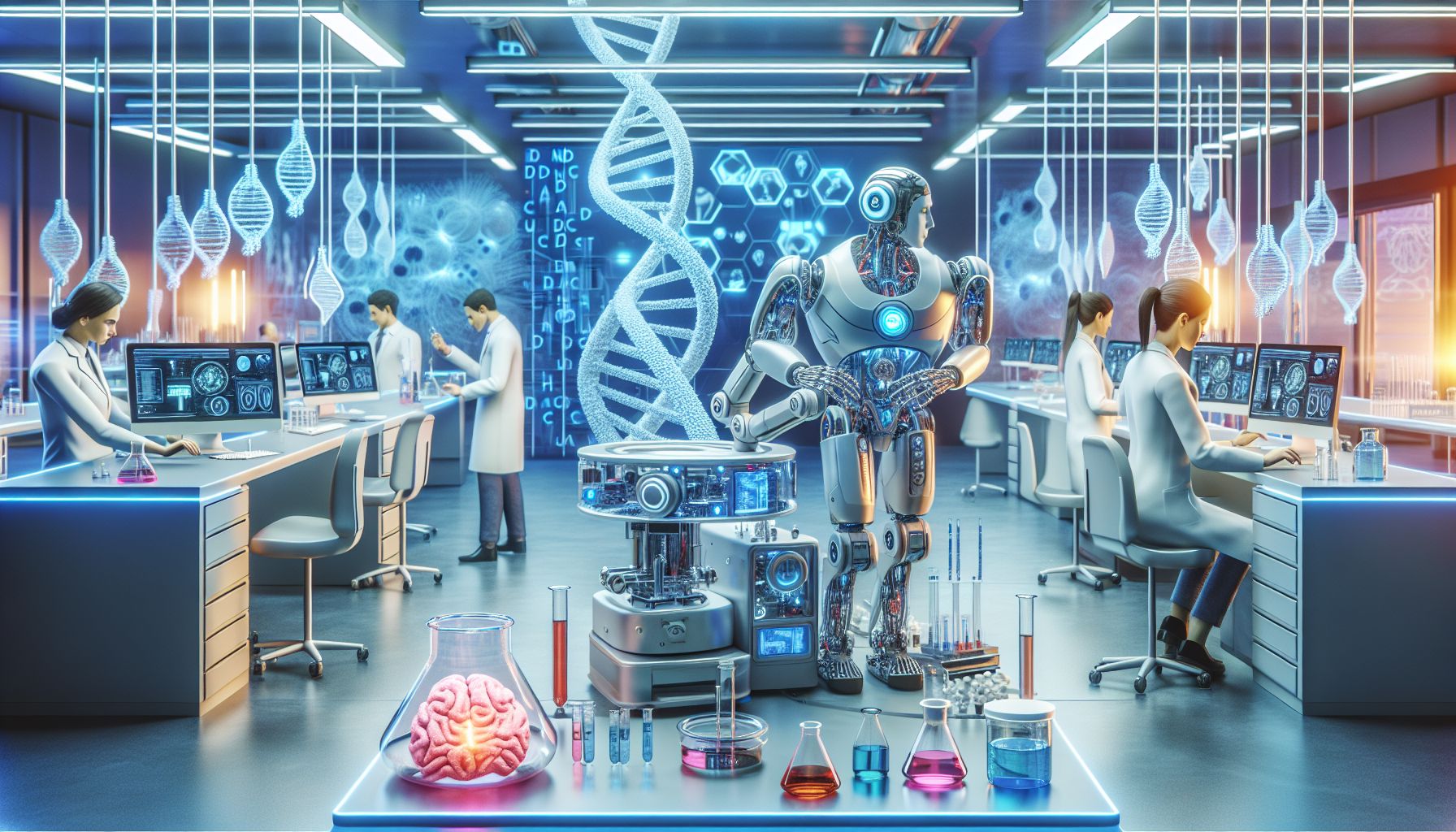
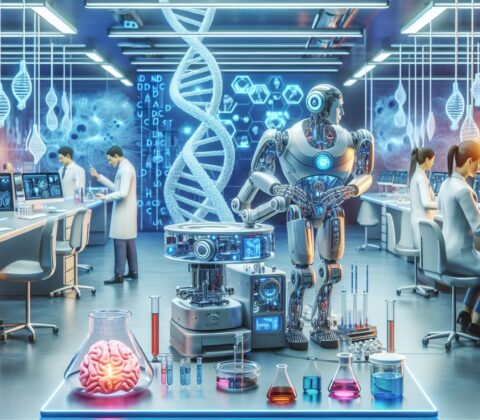
The Intersection of Technology and Pharmaceutical Products
Technology has played a significant role in revolutionizing the pharmaceutical industry, leading to innovative products that have improved patient outcomes and transformed healthcare practices. From drug discovery to manufacturing and distribution, technology has enabled pharmaceutical companies to develop more effective and personalized treatments. In this blog post, we will explore how technology has influenced the development and delivery of pharmaceutical products.
One of the key areas where technology has made a huge impact is in drug discovery. With the advent of high-throughput screening techniques and computer-aided drug design, scientists are now able to identify potential drug candidates more quickly and efficiently. This has led to the development of targeted therapies that are tailored to individual patients based on their genetic makeup and disease characteristics. The use of artificial intelligence and machine learning algorithms has also accelerated the drug discovery process by predicting the efficacy and safety of potential drug molecules.
In addition to drug discovery, technology has also revolutionized the manufacturing and distribution of pharmaceutical products. Automation and robotics have streamlined the production process, leading to higher efficiency and reduced costs. Advanced analytical techniques, such as mass spectrometry and chromatography, have improved the quality control of pharmaceutical products, ensuring that they meet stringent regulatory standards. Furthermore, the use of blockchain technology has enhanced traceability and transparency in the supply chain, enabling better monitoring of product integrity and preventing counterfeit drugs from entering the market.
Moreover, technology has transformed the way pharmaceutical products are delivered to patients. The rise of telemedicine and mobile health apps has enabled healthcare providers to remotely monitor patients and provide personalized treatment recommendations. Smart devices, such as insulin pumps and inhalers, have also made it easier for patients to manage chronic conditions and adhere to their medication regimens. Furthermore, the adoption of electronic medical records has improved communication between healthcare providers, leading to better coordination of care and reduced medical errors.
In conclusion, technology has had a profound impact on the pharmaceutical industry, driving innovation and improving the development and delivery of pharmaceutical products. As technology continues to advance, we can expect to see even more exciting developments in personalized medicine, drug discovery, and healthcare delivery. By embracing technology, pharmaceutical companies can continue to improve patient outcomes and revolutionize the way we think about healthcare.
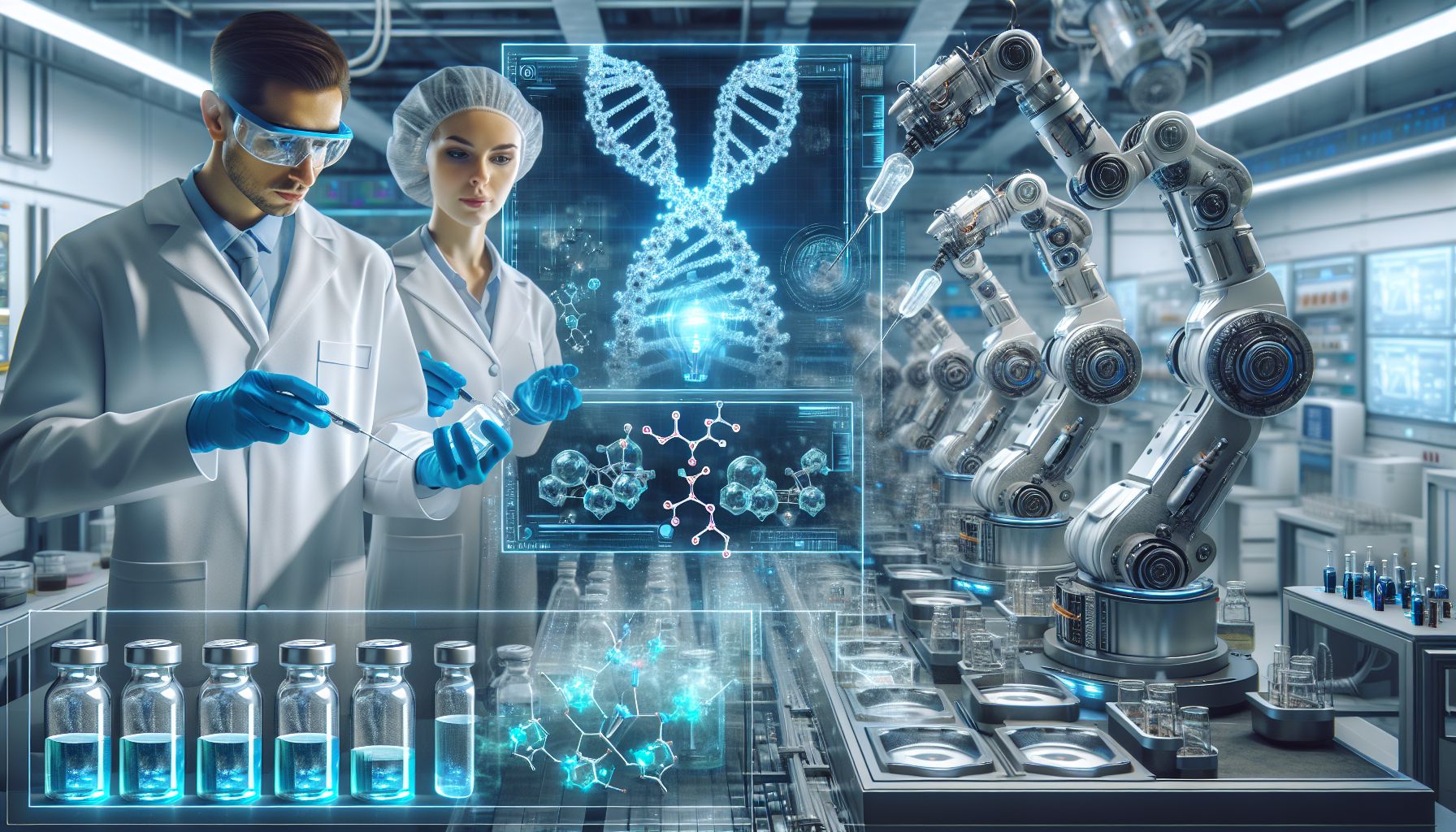
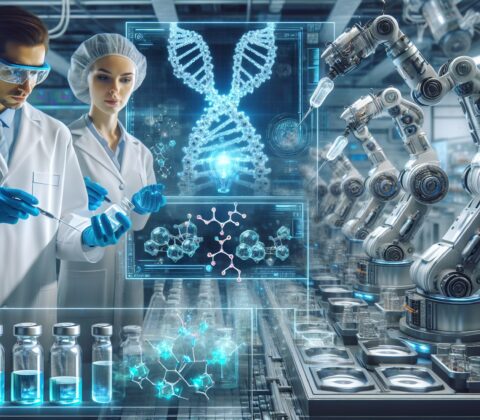
The Intersection of Technology and Pharmaceutical Products
In recent years, the pharmaceutical industry has seen significant advancements in technology that have revolutionized the way drugs are developed, tested, and marketed. From artificial intelligence and machine learning to 3D printing and virtual reality, new technologies are transforming the way pharmaceutical products are created and delivered to patients.
One of the key areas where technology is playing a significant role is in drug discovery. Traditionally, drug discovery has been a time-consuming and costly process that involves screening thousands of compounds to identify potential candidates for new drugs. However, with the advent of artificial intelligence and machine learning, researchers are now able to analyze vast amounts of data to identify promising drug targets more quickly and efficiently than ever before.
In addition to drug discovery, technology is also being used to improve the way drugs are tested and monitored. For example, wearable devices and digital sensors are now being used to collect real-time data on patients’ health and medication adherence, allowing healthcare providers to personalize treatment plans and improve patient outcomes.
Furthermore, advancements in 3D printing technology have made it possible to create personalized medications that are tailored to an individual’s specific needs. This has the potential to revolutionize the way drugs are manufactured and distributed, making it easier for patients to access the medications they need.
On the marketing side, technology is enabling pharmaceutical companies to reach consumers in new and innovative ways. Digital marketing strategies, such as social media advertising and influencer partnerships, are helping companies to raise awareness about their products and connect with patients on a more personal level.
While the integration of technology into the pharmaceutical industry has many benefits, it also poses challenges. Data security and privacy concerns, regulatory hurdles, and the high cost of implementing new technologies are just a few of the obstacles that companies face.
In conclusion, the intersection of technology and pharmaceutical products is reshaping the way drugs are developed, tested, and marketed. From AI-driven drug discovery to personalized medications and digital marketing strategies, technology is revolutionizing the pharmaceutical industry and improving patient outcomes. As we continue to see advancements in technology, it will be exciting to see how these innovations continue to transform the way we approach healthcare.
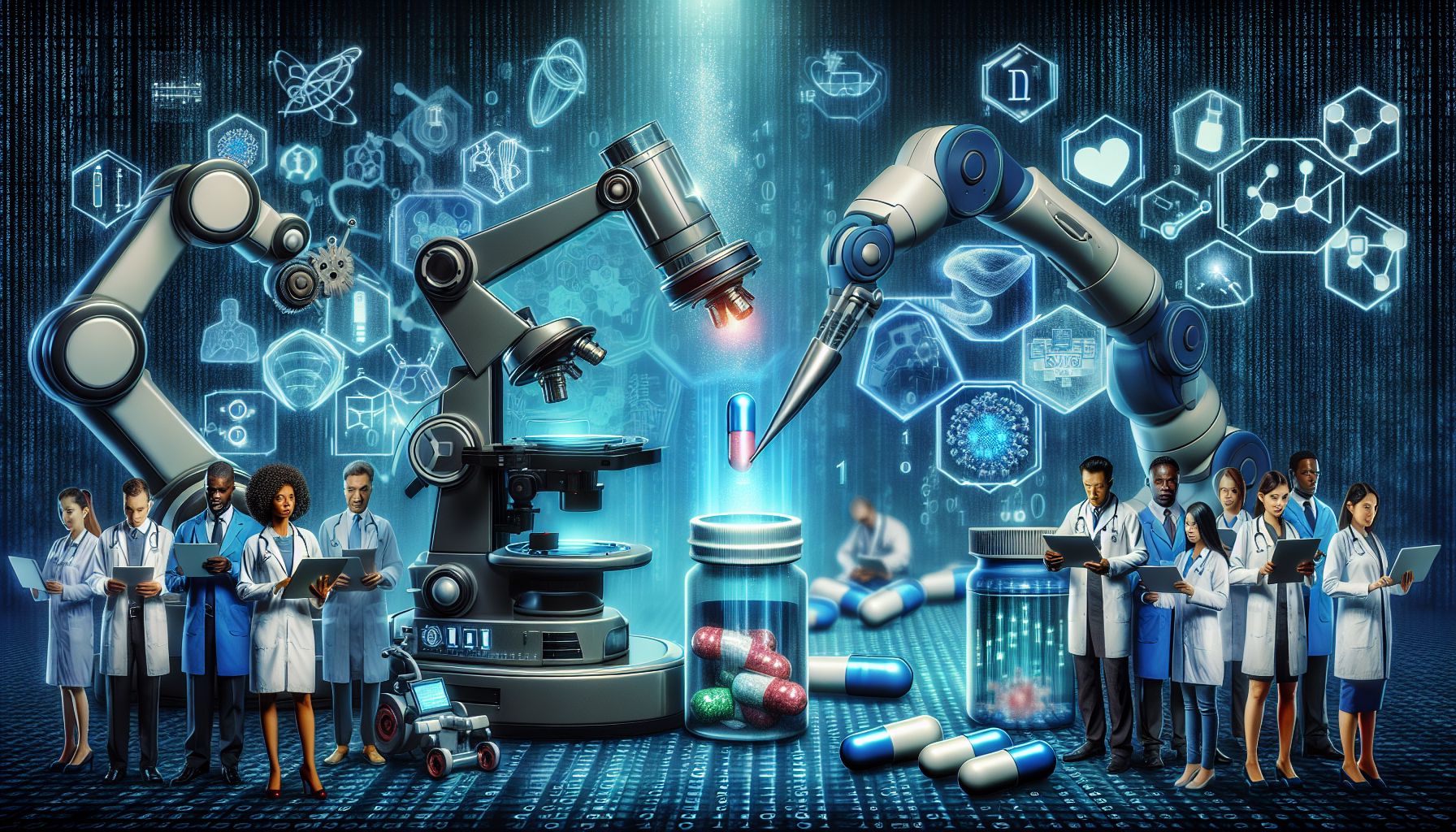
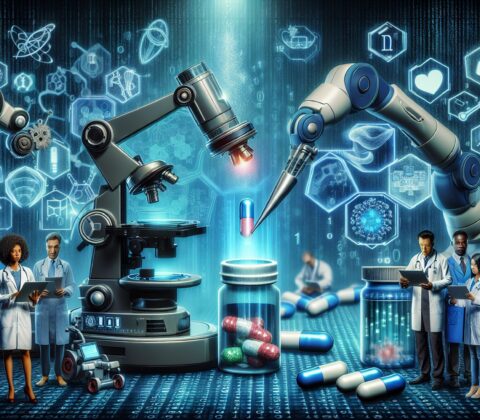
The Marriage of Technology and Pharmaceuticals: Enhancing Healthcare for All
In recent years, the integration of technology into the pharmaceutical industry has revolutionized the way healthcare is delivered to patients. From the development of innovative drugs to the creation of advanced medical devices, technology has become a driving force in improving patient outcomes and increasing efficiency in the healthcare system.
One of the most significant ways in which technology has impacted the pharmaceutical industry is through the use of big data and analytics. By analyzing vast amounts of data, researchers can identify patterns and trends that allow them to develop more effective drugs and personalized treatment plans for patients. This data-driven approach has resulted in the discovery of new drugs and is helping to improve the accuracy and efficiency of clinical trials.
Another area where technology has made a significant impact is in the field of telemedicine. Through the use of video conferencing and remote monitoring devices, patients can now consult with healthcare providers from the comfort of their own homes. This has been particularly beneficial for patients in rural or underserved areas who may not have easy access to healthcare facilities. Telemedicine has not only improved patient convenience but has also helped to reduce healthcare costs and improve overall access to care.
Advancements in technology have also led to the development of innovative medical devices that are revolutionizing patient care. From wearable devices that monitor vital signs to robotic surgical systems that improve precision and reduce recovery times, these technologies are transforming the way healthcare is delivered. For example, the use of artificial intelligence in medical imaging has enabled doctors to detect diseases such as cancer at an earlier stage, leading to better outcomes for patients.
The integration of technology into the pharmaceutical industry has the potential to improve healthcare outcomes for patients around the world. By harnessing the power of data analytics, telemedicine, and innovative medical devices, researchers and healthcare providers are able to deliver more personalized and effective treatments to patients. As technology continues to advance, the possibilities for improving healthcare will only continue to grow.
In conclusion, the marriage of technology and pharmaceutical products has the potential to transform the healthcare industry and improve outcomes for patients. By leveraging the power of data analytics, telemedicine, and innovative medical devices, researchers and healthcare providers are able to provide more personalized and effective treatments. As we look to the future, it is clear that technology will play an increasingly important role in enhancing healthcare for all.